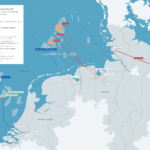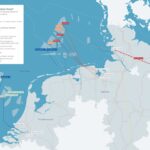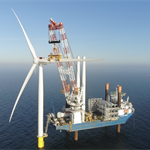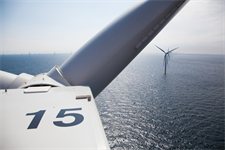Grid operator Tennet plans 6GW German offshore wind network
Energy Disrupter
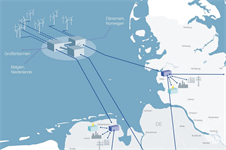
Transmission system operator (TSO) Tennet has unveiled a bundled network system to connect 6GW of North Sea offshore wind capacity to the German grid and possibly to neighbouring countries.
Its so-called ‘Wind power booster concept’ would comprise three interconnected 2GW direct-current (DC) network systems that would enable 6GW of offshore wind capacity to feed into the grid.
Each system would feature subsea cables connecting offshore wind farms to off- and onshore converter stations. Power could be fed into the German grid, or be used for green hydrogen production, Tennet suggested.
This modular distribution hub would differ from the point-to-point connection method that has typically been used to connect individual offshore wind farms to the onshore grid.
The first three connection points in Tennet’s plan would be in Bremen, Lower Saxony and Schleswig-Holstein in northern Germany.
The system could be expanded, enabling connections to additional capacity or other places. This could include direct connections to Denmark – which is building an energy island hub – the UK, Belgium and the Netherlands.
It could also be used to distribute power between different states and countries.
Tennet believes the system could be operational as early as 2032.
It does not yet have a cost estimate for the system. Under current German law, Tennet would be expected to pay for and build the grid connection, a spokesman advised.
The proposals would require approval by the federal network agency (Bundesnetzagentur) and the German parliament.
For the three initial German network connection points, the lines would be networked with one another, ensuring the system’s robustness, power and cost-effectiveness, Tennet explained.
Land use and the environmental impact would also be minimised and new European electricity trading capacities created, it added.
Tennet COO Tim Meyerjürgens said the concept should help to accelerate offshore wind expansion and increase the efficiency and security of electricity supply.

